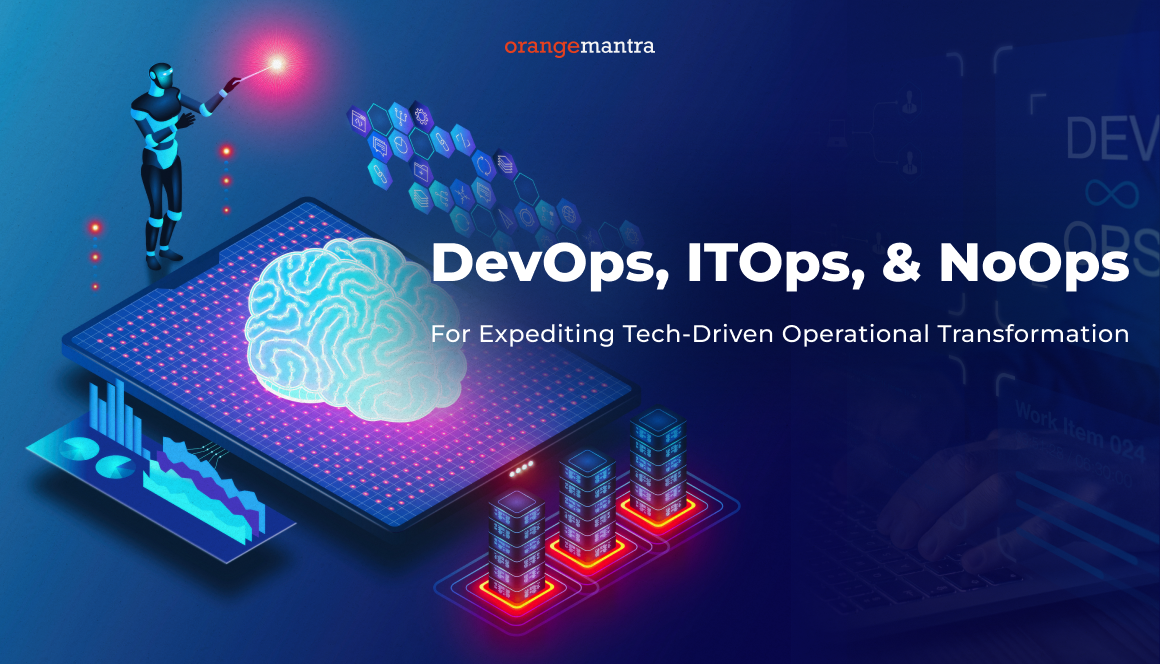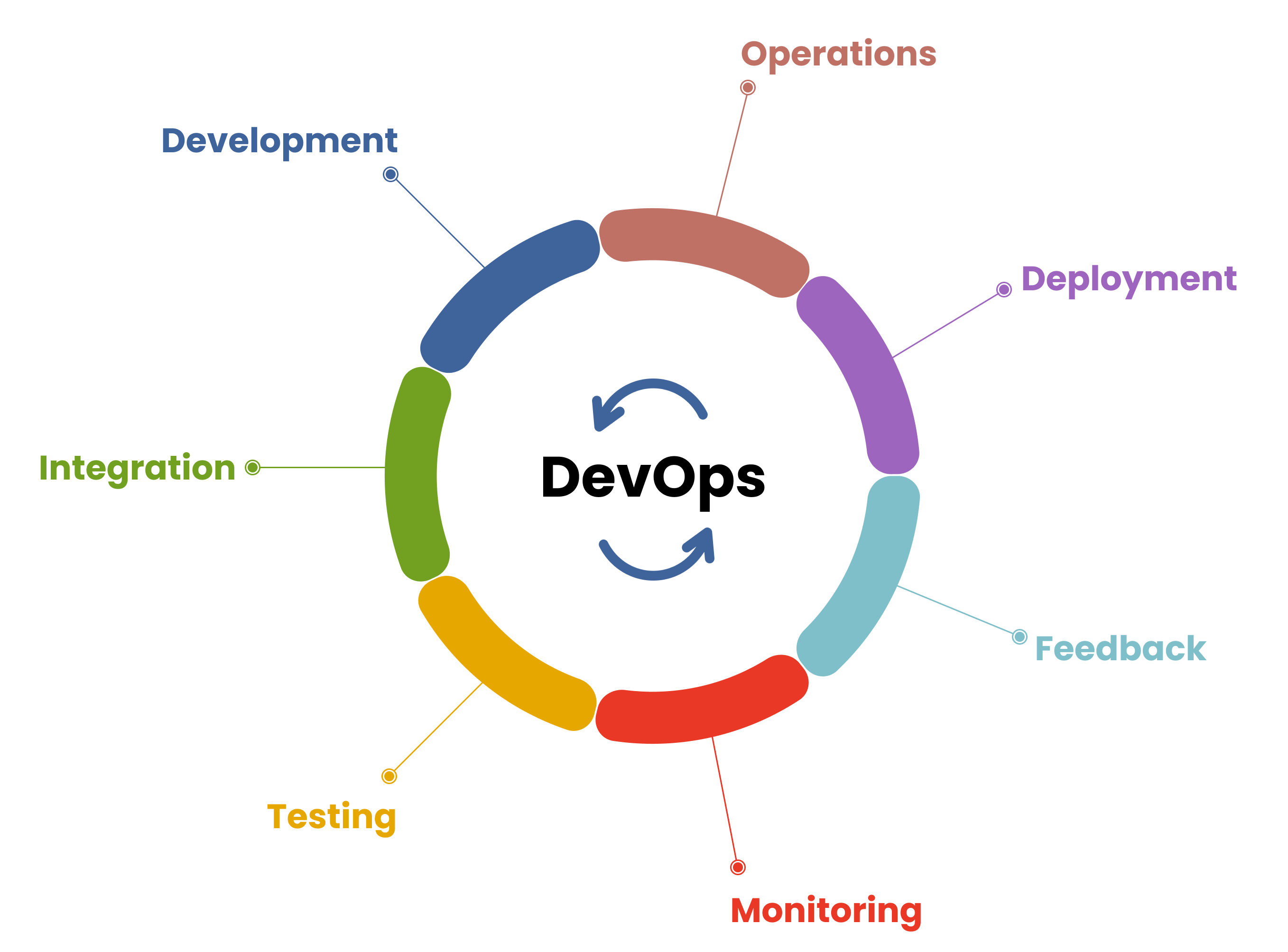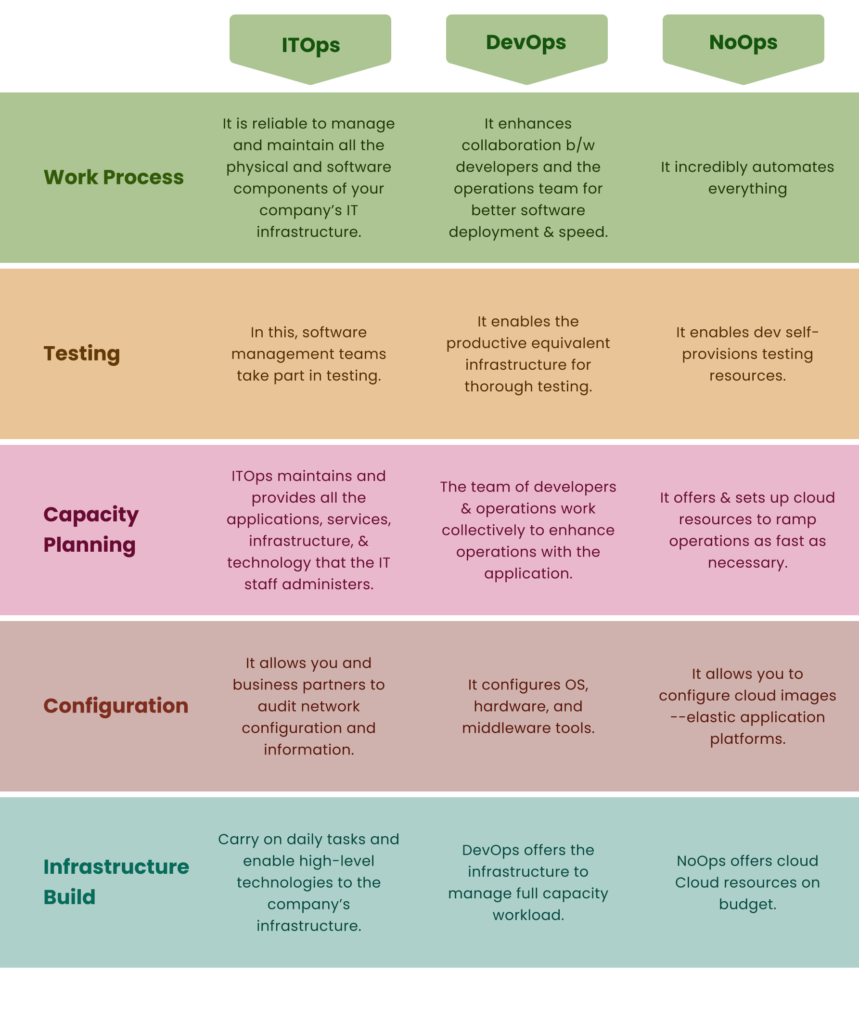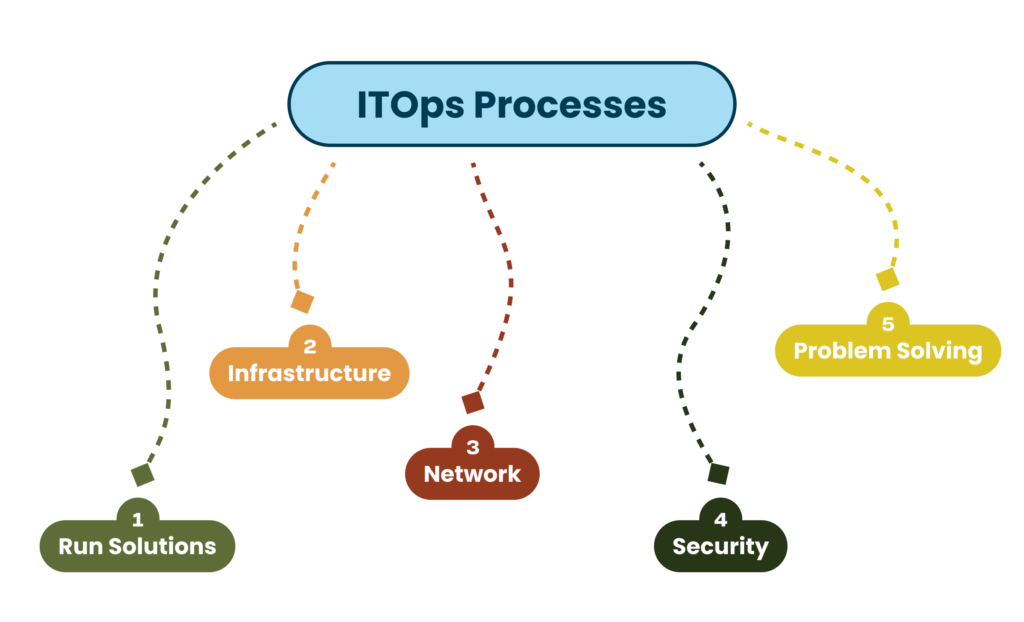NoOps, DevOps, and ITOps are three very different things that, at times, we use in conjunction with one another. They all share a common goal though: to improve the efficiency of a business’s infrastructure. However, all three of these also have some distinct differences. You need to understand the most striking differences before choosing any of them, including DevOps services, for your company.
ITOps and DevOps are both areas of specialization within IT departments. NoOps is more closely associated with an organizational structure designed to remove the need for IT entirely.
Understanding the differences between these three approaches will help you make the right decisions regarding your organization’s tech infrastructure. Altogether, it helps you determine which specialists will be best suited to help you achieve your goals.
In the following sections, we’ll show you how they’re applied to real-world scenarios. So, you can make informed decisions about choosing these services for your company. Without further ado, let’s delve deeper into the ITOps vs. NoOps vs. DevOps services comparison.
How DevOps Services Drive Agile Transformations
DevOps harnesses a multitude of practices from both software development and IT operations to form an agile pipeline for the production cycle. This automated process provides seamless integration between various departments within an organization. And with newer DevOps trends emerging, more companies are getting dynamic about their IT strategy.
Additionally, it maintains high-quality standards in every area, ultimately expediting the time required to complete projects. Succinctly, DevOps services encompass the principles of bringing software development and IT operations together.
Combining these two departments, we can produce higher quality products while maintaining agility. This approach emerged from traditional methods during the cloud computing age.
Efficient ITOps for Ensuring Organizational Success
IT Ops (or Tec Ops) is shorthand for IT Operations. IT Operations include every task that touches anything related to information technology. It includes but is not limited to:
- All aspects of infrastructure management and operation,
- Network administration,
- Application development and maintenance,
- Security assessment and policy compliance analysis,
- Software licensing management,
- Data backup and disaster recovery planning/preparation/execution,
- Telecommunications management, and much more.
In short, IT Ops applies to virtually everything in the world. Therefore, ITOps is a significant part of digital transformation strategies and initiatives to improve organizational processes.
How NoOps Harbingers an Automation-Driven Future
NoOps is the next step of the DevOps services movement that eliminates the need for a dedicated operations team. All activities related to provisioning, updates, and upkeep are completely handled through automation so there’s no need for manual input.
But unlike DevOps, NoOps eliminates any operational concerns by getting rid of human involvement altogether. Once every task has been automated and streamlined, developers can use these tools and processes in an entirely hands-off manner even if they don’t know how it all works under the hood.
NoOps can bring the quality of DevOps services and solutions into your company infrastructure. However, it is still in its infancy. Thus, its quality and efficiency are still under observation.
ITOps vs. NoOps vs. DevOps Services: Key Differentiators You Must Know
 What Exactly Happens in ITOps?
What Exactly Happens in ITOps?
In its most basic form, IT Ops encompasses the processes necessary to deliver and maintain both new software creations and existing infrastructures. It majorly focuses on processes that are essential for running an IT-based product or service.
It means it overlaps with both software developers and system administrators. One of the key differentiators between ITOps Vs. DevOps. Vs NoOpsis how it approaches change delivery and management.
Rather than emphasizing consistency over time, it usually focuses on responding quickly to business needs. In turn, there are many possible jobs within this line of work which include:
- System administrator – Server & Device Management.
- Network Administrator – Network & Connectivity Management.
- IT Service Desk – Operations & Help Desk.
The above-mentioned roles represent those who manage to deliver changes as well as maintain all things IT-related.
What Drives Success in DevOps?
DevOps is about merging different philosophies and tools with a greater emphasis on unity among teams. It also introduces new processes to organizational data management strategies. A modern-day software delivery team can consist of multiple specialized teams—such as:
- Development
- Quality Assurance (QA)
- Infrastructure
- Security
- Support
DevOps aims to foster a more collaborative environment. Even if! It means adopting streamlined procedures for individual groups— so long as they don’t conflict with one another.
Compellingly, devOps automation can play a huge role in this regard. It makes it easier for both individuals and entire teams to focus on their key aspects without forgetting the rest—by implementing agile methods and rapid cycles of learning.
Within DevOps services and solutions, tools that can support automation may include Continuous Integration and Continuous Delivery (CI/CD) Infrastructure as Code Automation frameworks and Automated monitoring.
How NoOps Leverages Automation?
NoOps is a term coined to describe organizations that use cloud infrastructures and don’t want to spend resources managing servers. It’s great for giving back some control to the developer—who has nothing left to do after deploying their app except monitor its performance.
Meanwhile, this opens up opportunities for an Ops team who now have time to focus on other tasks like production problem-solving. Unfortunately, NoOps can come with challenges too. A lack of process management or effective tracking can cause major issues.
It might mean that teams aren’t operating at peak efficiency when they could be collaborating more easily. In many cases, NoOps would work best when it complements DevOps practices by introducing automation. So, deployments happen automatically without interruption from Ops staff.
This way they can focus on things that matter most like solving production problems instead of waiting around for someone else to tell them what needs fixing next.
ITOps vs. NoOps vs. DevOps Services: Why to Choose?
Benefits Of Choosing ITOps:
- Stability, long-term support, and efficiency over speed & agility.
- Extremely strict but tried and tested workflows.
- Primary focus on IT operations/infrastructure management to streamline processes to make sure business isn’t interrupted.
- Geared towards managing physical infrastructure across different businesses.
Benefits of Choosing DevOps:
- Quick delivery of software and applications to customers.
- Ensures faster delivery of new features that the customers want.
- Improved collaboration between the full stack developers and the operations team.
- It finds solutions to problems quicker. The IT department can have more time to innovate instead of fixing or maintaining unstable systems.
Benefits of Choosing NoOps:
- Automation of everything.
- It eliminates the need for separate operations teams while providing all the necessary automated tools and platforms for developers to manage the software delivery.
- NoOps relies heavily on cloud computing services such as serverless computing and containers to provide an environment where there is no concern about infrastructure.
- It focuses on ease of use and speed over flexibility but allows for granular control when needed. This system works best when you are focused on a public or private cloud model.
Wrapping Up
There are no wrong answers for how a company should tackle IT infrastructure problems. However, it is most vital to find the perfect strategy. You must zero in on an approach that best suits the particular needs of your business. Keeping up with current IT trends is crucial when determining which method would work best for your business.
Some factors need far more attention than others. NoOps, though promising in theory, requires manual labor until they’ve reached certain standards. Meanwhile, DevOps services and solutions fill most gaps left by traditional methods while addressing their shortcomings efficiently. Consider hiring DevOps engineers for your unique needs.
DevOps has seen incredible success thanks to its ability to adjust accordingly depending on whatever project type you’re working on. From mobile app to website updates, it has showed great credibility while staying cost-effective and enabling through automation. These advantageous points are just what allow enterprises to meet deadlines without cutting corners—proving why DevOps is becoming so mainstream.
FAQs
What is DevOps?
DevOps is a software engineering practice that creates synergy between development and operations teams. It offers continuous collaboration and coordination for the speedy delivery of product enhancements.
What is the difference between DevOps and DevSecOps?
DevOps is when Development and Operations work together to break down communication barriers, eliminating silos. Security isn’t just an afterthought; it’s deeply embedded into every aspect of the process chain.
DevSecOps addresses the security issues that are presented by a change-driven culture like DevOps.
How does DevOps improve an organization’s level of system security?
When we talk about security, many challenges come up when you’re thinking about how it has changed over time. Traditionally, security was something you thought about only at the end of a process; but now we know it needs to happen throughout all stages.
This is called Security-as-a-Service or SecDevOps and helps your IT provider offer you better protection than ever before.
How can you measure the ROI of DevOps?
It all comes down to assessing these three key factors:
– Quality.
– Performance.
– Metrics.
The State of DevOps 2019 report demonstrates high performance with DevOps when compared to non-DevOps. It says that DevOps offers 208 times higher deployment frequency, 106 times faster lead time, and a 60% increase in revenue and profits.


 What Exactly Happens in ITOps?
What Exactly Happens in ITOps?






















